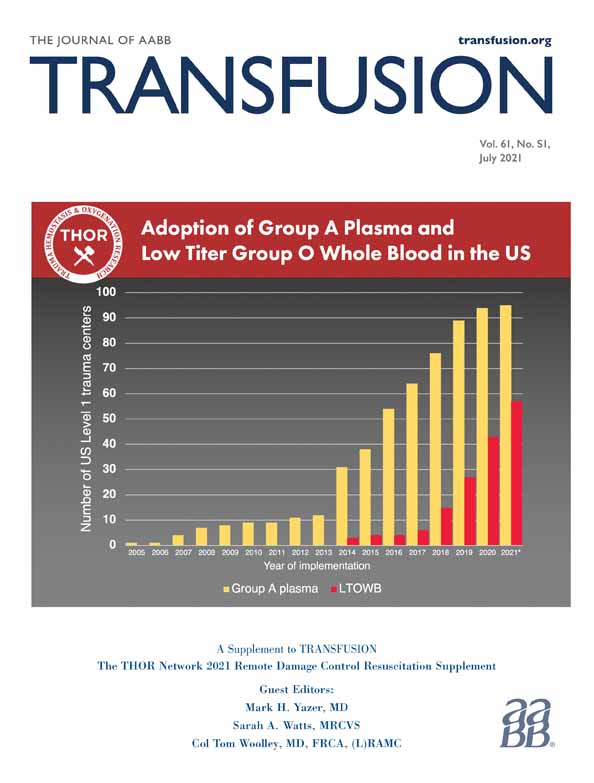Massive transfusions and severe hypocalcemia: An opportunity for monitoring and supplementation guidelines
Abstract
Background
Massive transfusion protocols (MTPs) are associated with severe hypocalcemia, contributing to coagulopathy and mortality in severely injured patients. Severity of hypocalcemia following massive transfusion activation and appropriate treatment strategies remain undefined.
Study design and methods
This was a retrospective study of all MTP activations in adult trauma patients at a Level 1 trauma center between August 2016 and September 2017. Units of blood products transfused, ionized calcium levels, and amount of calcium supplementation administered were recorded. Primary outcomes were ionized calcium levels and the incidence of severe ionized hypocalcemia (iCa ≤1.0 mmol/L) in relation to the volume of blood products transfused.
Results
Seventy-one patients had an MTP activated during the study period. The median amount of packed red blood cells (PRBCs) transfused was 10 units (range 1–52). A total of 42 (59.1%) patients had periods of severe hypocalcemia. Patients receiving 13 or more units of PRBC had a greater prevalence of hypocalcemia with 83.3% having at least one measured ionized calcium ≤1.0 mmoL/L (p = .001). The number of ionized calcium levels checked and the amount of supplemental calcium given in patients who experienced hypocalcemia varied considerably.
Discussion
Severe hypocalcemia commonly occurs during MTP activations and correlates with the number of packed red blood cells transfused. Monitoring of ionized calcium and amount of calcium supplementation administered is widely variable. Standardized protocols for recognition and management of severe hypocalcemia during massive transfusions may improve outcomes.




